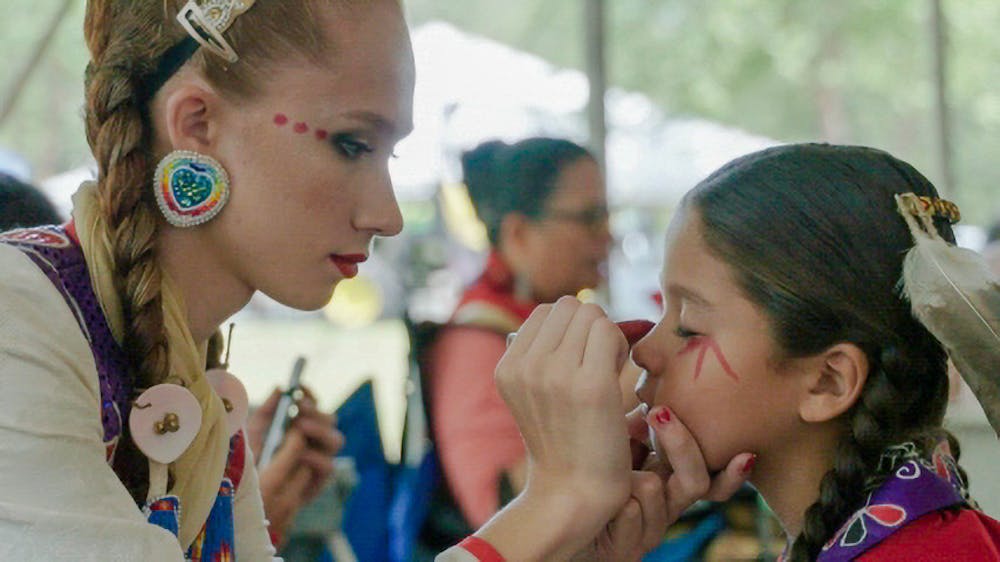Sherenté Harris ’23 was only 14 years old when they met director Stéphanie Lamorré.
Lamorré “wanted to make a film about Indigenous people, but when she discovered me she became really interested in (specifically) telling a story about me and my people,” Harris said.
The resulting documentary, “Being Thunder,” premiered at the Inside Out Film Festival in 2021 and became available to stream in November 2022. The film follows Harris’s journey from teenager to adult as a dancer and two-spirit member of the Narragansett Tribe.
The documentary was initially supposed to solely explore Harris’s two-spirit identity, but its focus shifted as Harris began practicing Fancy Shawl dancing, which they described as a “traditional women’s style of dance.”
The film documents the resistance Harris faced as a two-spirit performer at community dance competitions such as the annual Narragansett Powwow and August meeting.
Right before Harris were slated to perform at a competition, judges told their parents that they could no longer compete, despite initially being allowed to register as a dancer, they said. Harris described the climax of the film as a point when their community surrounds them and holds a protest in support of them as a dancer.
“A tremendous amount of change was able to come through that,” Harris said. “It never would have been enough if it was just me out there.”
Though Harris said they were “pleased with the documentary” in the end, the distance between them and Lamorré proved challenging during filming.
Throughout the filming process, Lamorré traveled between New York City and Rhode Island, Lamorré wrote in an email to The Herald. When in Rhode Island, she stayed with Harris’ cousin, who lived next door to Harris.
“We had to coordinate when Stéphanie was to come, but we had no idea when things would be happening, and sometimes, the plans would fall through at the last minute,” Harris said.
Both Harris and Lamorré noted that on some occasions, the camera’s battery would die while filming a scene. Harris added that at other times, Lamorré would come to visit and film, but nothing worth adding to the documentary would take place.
But occasionally, “wild stuff happened, especially at the climax of the documentary,” Harris said, referring to the scenes of the protest. “There are some incredible moments that I am so glad Stéphanie was there to capture.”
Lamorré wrote that she hopes the film sends a message of love to Sherente, their family and their community. “My goal was to give a different perspective about the Native American community, too often seen in a negative perspective or wrong way or only folkloric way, at least in Europe.”
Nkéke Harris ’25, Sherenté’s sibling who also appeared in the film, described the film as a “staunch action against colonization and its endemic hatred rooted in Indigenous communities” in a message to The Herald.
Harris added that viewers will learn more about the Narragansett Tribe through the film.
“Beyond knowing our name, I hope that the Narragansett Tribe is something they remember in their heart,” they said. “And the only way that can happen is through art, is through storytelling.”
“Our stories are at the heart of who we are,” Harris added. “I hope this (film) can serve as a story that uplifts not only my people but also all of the invisible two-spirit people. And I hope it serves as a platform where I can continue to tell more stories.”

Neil Mehta was the editor-in-chief and president of the Brown Daily Herald's 134th editorial board. They study public health and statistics at Brown. Outside the office, you can find Neil baking and playing Tetris.





